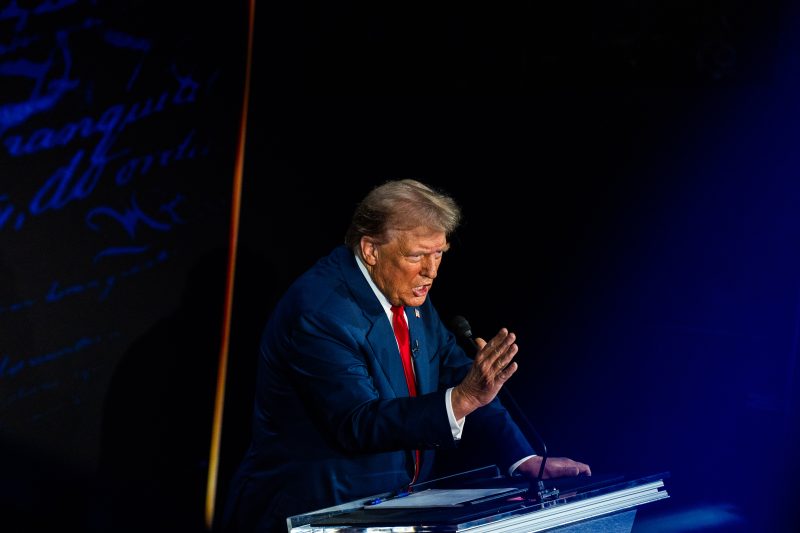Editor's Pick
15-09-2024 12:13
5 Views
Trump and GOP Ignite Controversial Chatter: Cannibal Pets, Fixed Debates, and the Mysterious QAnon!

Title: The Baffling Charade of Conspiracy Theories and Political Maneuvers within the GOP
The world of politics is often filled with intrigue and, in recent times, we have borne witness to a growing trend of wild conspiracy theories. The modern era has seen an unparalleled rise of these narratives, with politicians interfusing their rhetoric with an assortment of conspiracy theories.
Our focus here is on the Republicans within the United States, particularly during the tenure of President Donald Trump. Trump's era was marked with a significant peddling of conspiracy theories, adding a unique shade of complexity to his political leadership. Notably, some of these narratives have been incredibly outlandish, ranging from eating pets to rigged debates and the infamous QAnon.
"The Conspiracy Cocktail: Pets, Rigged Debates, and QAnon"
One such conspiracy theory was focused on the passionate instigation of fear around domestic pets. Some Republicans propagated the narrative that the Democratic party, if they won the elections, would force Americans to eat their pets due to an alleged climate change plan. This baseless claim, while clearly absurd to many, managed to strike a chord within certain segments of voters who have a deep-seated mistrust of political opponents.
Another related theory revolved around the alleged rigging of presidential debates. A segment of the GOP and some Trump loyalists stated that the debates were unfairly manipulated to neighboring the Democratic party, eliciting negative sentiments towards the democratic process itself. Speculative discussions about microphones being muted or moderators playing favorites further fueled this fire.
However, on the hierarchy of startling conspiracy theories within Trump's term, QAnon sits ominously at the top. QAnon, a baseless conspiracy theory popularized on internet forums, suggests that a globalist cabal of pedophiles, which includes prominent Democrats and Hollywood elites, are conspiring against Trump. The degree of acceptance this theory has found in some circles is eerie and points towards a trend of collective fear and mistrust.
"The Repercussions of Conspiracy Theories"
The prevalence of these conspiracy theories holds significance far beyond the colorful narratives they spin. They have the power to manipulate public opinion, sow seeds of trust in institutional processes, and, most concerning of all, exacerbate societal divisions.
The scope of these theories extends beyond mere rhetoric and enters the realm of direct influence on policies and legislation. Moreover, these unfounded narratives undermine the public's trust in democratic processes and institutions, fostering a dangerous level of political cynicism.
"Social Media – A Catalyst for Conspiracy Theories"
Conspiracy theories are no longer confined to hush-hush whispers in backroom meetings; they have found a massive platform on social media. As the boundaries of information sharing decrease, the spread of these theories becomes pandemic-like, necessitating a collective response that prioritizes truth, civility, and a universal respect for democratic institutions.
In conclusion, the trend of propagating conspiracy theories within the world of politics, especially within Trump's era, needs addressing due to their potential damage. The undermining of the democratic process, the intensification of societal divisions, and the erosion of trust in institutions bear significant implications for the health of any democracy. As such, it is imperative for political leaders to ensure their rhetoric is rooted in truth and civility rather than paranoia and division.

